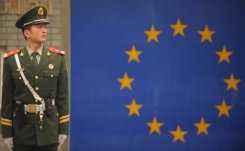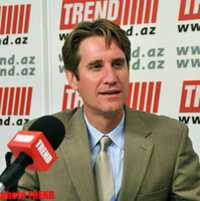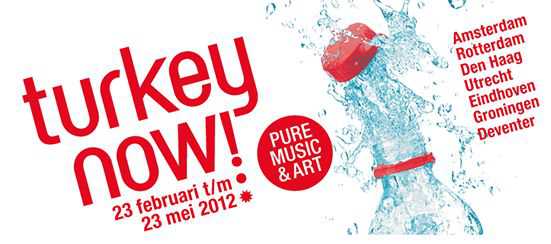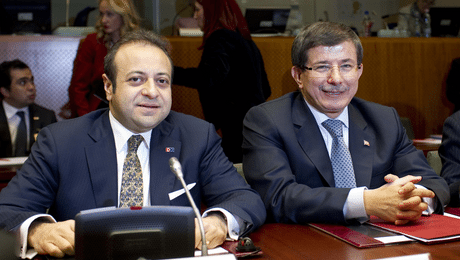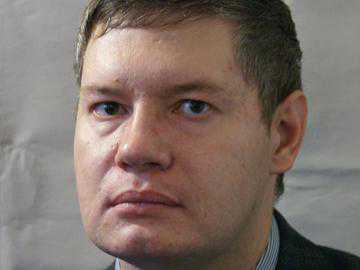It is probably different when you have a friend in the EU institutions. Of course, it is important what that friendship is based upon and also whether there are expectations this friendship to deliver something specific. This is what I was thinking while I listened to the brief press conference of the Turkish chief EU negotiator, Egemen Bagis, and the new president of the European Parliament, Martin Schulz. I relied on that news conference very much, because there were only photos and video footage from the other meetings of Bagis in Brussels. After all, Turkey is a strategically important partner of the EU, the oldest candidate for a full membership and at the moment a very influential player in the Middle East.
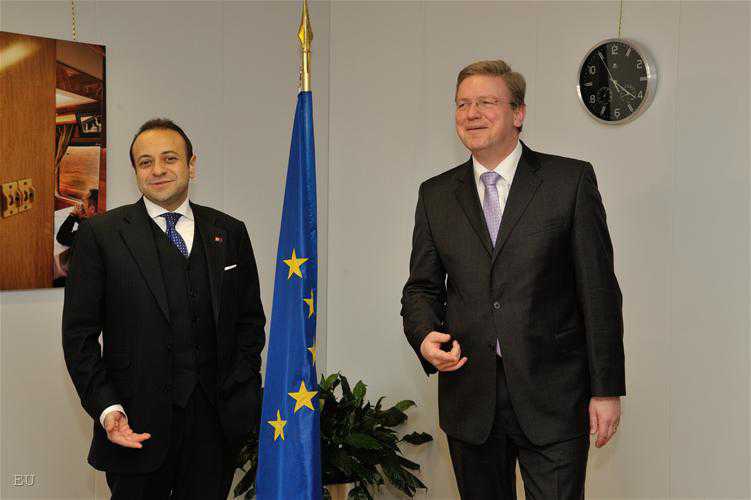 A little context
A little context
While I was waiting for that press conference to start, I had a few questions wandering in my mind. Without enlisting them in order of significance, the first that came across was related to an announcement I saw on Twitter yesterday (Feb 7), that against the backdrop of the expectations the Greek coalition government to finalise the text of an agreement with its creditors and the troika, Turkey had stopped the gas deliveries for Greece. The news is especially stressful because it is a signal that maybe Greece is no longer capable of paying even for its gas deliveries, which means that it is practically bankrupt. Besides, stopping the deliveries is happening at a time of one of the severest winters in Europe in general for decades. So, this question was important to be addressed – what were the reasons for halting deliveries, could the EU do something, etc. According to reports in the Turkish NTV, there were technical problems that caused the stop of gas deliveries from Azerbaijan to Turkey and Iran.
The second question, of course, was related to Turkey’s accession process, which has been practically stalled since 2010 when during the Spanish Presidency of the Council was the last time when a chapter in the negotiations was opened. Since then, the meetings with Turkish representatives have been growing more and more uncomfortable for the EU and reveal the growing self-confidence of Turkey as a self-reliant regional power, which no longer needs the EU but which the Union needs more and more.
Naturally, the third issue was the Syria situation, against the backdrop of the Russian and then Chinese veto on a resolution in the UN Security Council, that caused a wave of disappointment and even bewilderment.
Syria
The news conference started with pointing out the friendly relations between Egemen Bagis and Martin Schulz, the purpose of which remained unclear. The European Parliament chief outlined as an especially important topic of his discussions with Bagis precisely Syria. “We, as Europeans, have to be very grateful to the position Turkey chose regarding Syria”, he said, having in mind the support Turkey stated for the pro-democratic protests in the country, violently crushed by Bashar Assad’s regime. And Mr Bagis for his part underlined that this was the right position, because innocent people were killed. It is time the international community to work to convince the Syrian leadership to implement the necessary reforms so that all in Syria live in prosperity and freedom, he added.
The international community is at the moment with tied hands. The US has closed its embassy in Damascus, followed by several European countries. The only connection with Bashar al-Assad’s government is being maintained by Russia. On February 7th, Sergey Lavrov, Russia’s foreign minister, visited the country. A fact, which is obviously not to Turkey’s liking. On Saturday, Turkish Foreign minister Ahmet Davutoglu said at the annual security conference in Munich that there was a great danger nuclei of confrontation to be created in the region. “We do not want the Cold War logic in our system”, he said and called the Cold War structures in the region to be transformed.
The role Turkey is playing in the region was an occasion Martin Schulz to say that, because of Syria, Turkey had again proven how important it was as a strategic partner of the EU “today and in the future”.
Armenia
What caused my perplexity was Schulz’s reaction to a question of a journalist, regarding an ongoing preliminary investigation in Switzerland, related to a remark Egemen Bagis made regarding the events of 1915, which Turkey denies were a genocide against the Armenian people. For unclear reasons this question evoked laughter with the European Parliament chief, who in the same time refused to comment on preliminary investigations. While Egemen Bagis was answering that question however, Martin Schulz continued to laugh, finding it hard to repress.
The Turkish minister recalled that his country was ready to confront its history and to create a committee of international experts on the Armenian question and reminded about the letter of Premier Erdogan to the government of Armenia in 2005, in which he says that he is ready to confront his history and asks whether Armenia is ready to do the same. In fact, Mr Schulz did not leave the topic without a comment, saying that he wanted to make a recommendation in his capacity of a German and especially of a German president of a multinational European institution, who has to confront his country’s past everyday. “The demons of our past haunt us even today and every day I face my country’s past. Our generation is not guilty for crimes committed in the past but it is responsible to ensure that they do not repeat”.
Turkey and the EU
Was it for the friendly relations with Egemen Bagis or for his personal convictions, but Martin Schulz called on the European Union to stick to its promises for Turkey and its membership to the EU. He recognised that this was a long and difficult way but that was a promise the EU made for Turkey. Schulz explained that both discussed the term “European perspective” which, in his words, was often used for candidate countries. In fact this term is used especially frequently for countries the membership of which seems too distant, like for example the Western Balkan nations. According to Schulz, the European Perspective is a geographic game. This term means to stick to the commitments Turkey to become a member of the EU. For his part Egemen Bagis explained that the European perspective meant that it was time “together to look into the problems, not only because we have common past and heritage but a common future”.
Cyprus
With his words the Turkish minister for European affairs confirmed Turkey’s pledge to ignore the EU Council Presidency of Cyprus, which starts on July 1, unless a solution is found by then to the Cyprus question. He announced that he and the president of the European Parliament had committed to assist the presidents of the two communities – the Turkish and the Greek – to shake hands in agreement before July, “so that this does not turn into an issue but into a solution and an opportunity for the EU-Turkey relations”.
For now it is not clear how Bagis’s meeting with EU Enlargement Commissioner Stefan Fule went by but the video footage reveals very warm relations. As euinside wrote many times, for long it has been high time a brand new conversation between the EU and Turkey to take place on what the relations between them should be, especially against the background of the really impressing role the country is playing in the Middle East in a moment when Europe has its throat squeezed by severe fiscal and economic troubles. To which, by the way, Turkey also proposes a solution, articulated again by Egemen Bagis – remove the visas and thus you will boost your economy. Turkey is the only EU candidate country which is still under a visa regime with the EU.
